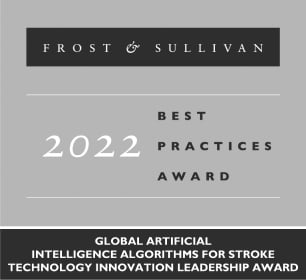In addition to facilitating communication between specialists in pulmonary embolism (PE) care teams, AI solutions such as RapidAI can assist PE care teams by gathering data. Analyzing this data and making informed, data-driven decisions have the potential to reduce PE-related morbidity and mortality.
PE database can improve PE careDatabases and registries serve as a wealth of knowledge for healthcare providers. Given the challenges in diagnosing and treating PE, producing high-quality data would advance our understanding of the disease and help create more definitive guidelines for PE care. This can assist PE care teams to quickly arrive at a customized treatment plan for each patient.
For example, novel therapies to treat intermediate- and high-risk PE patients show promise. However, extensive clinical data on the efficacy of these treatment options is not available. Therefore, recording patient data, including signs and symptoms at presentation, clinical history, laboratory and imaging studies, severity of PE, treatment, and outcomes across multiple centers can provide insights that can help inform future clinical decisions.
Such databases can also aid researchers determine criteria of patient selection in PE clinical trials.
AI can help automate data registry
Each PE patient whose clinical information is input into an AI solution would serve as a data point. Using an AI solution would make data collection uniform and standardized across healthcare centers.
As the data collected grows exponentially, AI can be used to perform high-quality, quick, and accurate data abstraction. Over time, and with research, AI solutions have the potential to use this data efficiently and help create more definitive guidelines for PE care.
AI and the future of PE care
We recently had the pleasure of hosting a panel discussion with leaders in the field of PE care - Dr. James Benenati, Dr. Ken Rosenfield, Dr. Keith Sterling and Dr. Vic Tapson. They shared with us their experience with PE care teams, what's working and what’s not, and how AI can transform PE care.
They also discussed how combining AI and patient data to provide valuable insights on PE care would be an exciting opportunity.
Join the #PErevolution and watch the panel discussion to learn more about the current state of PE workflow.



